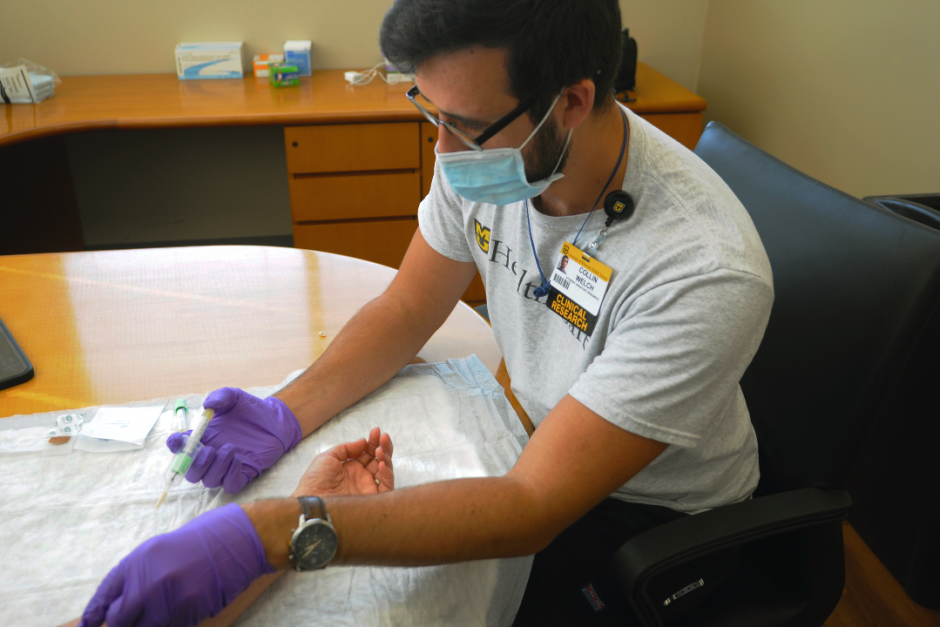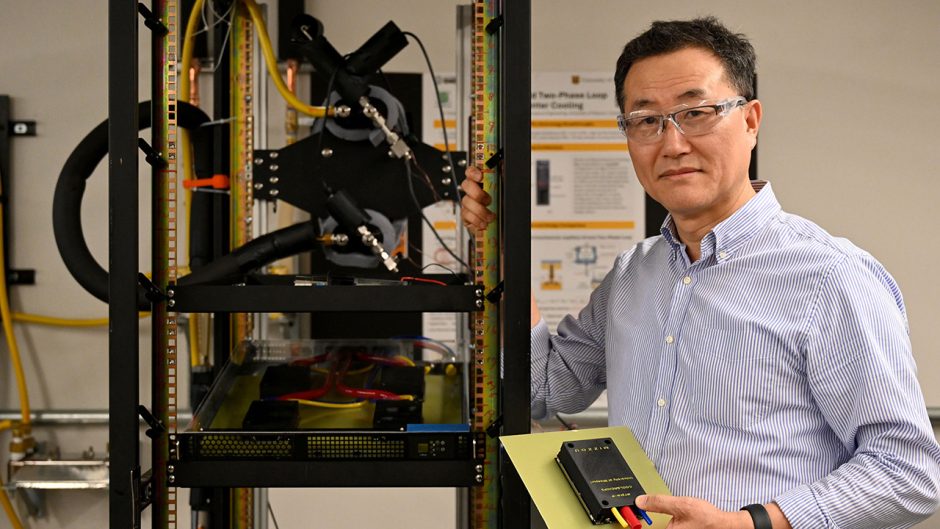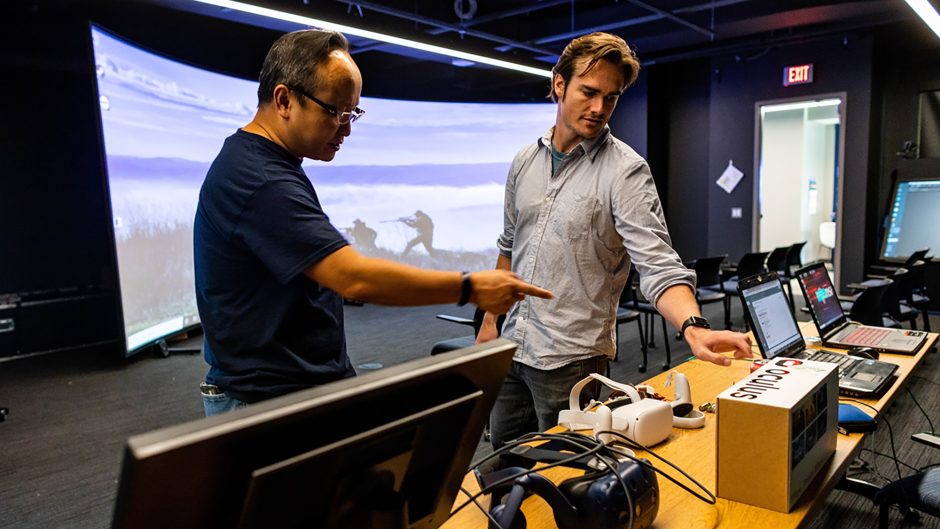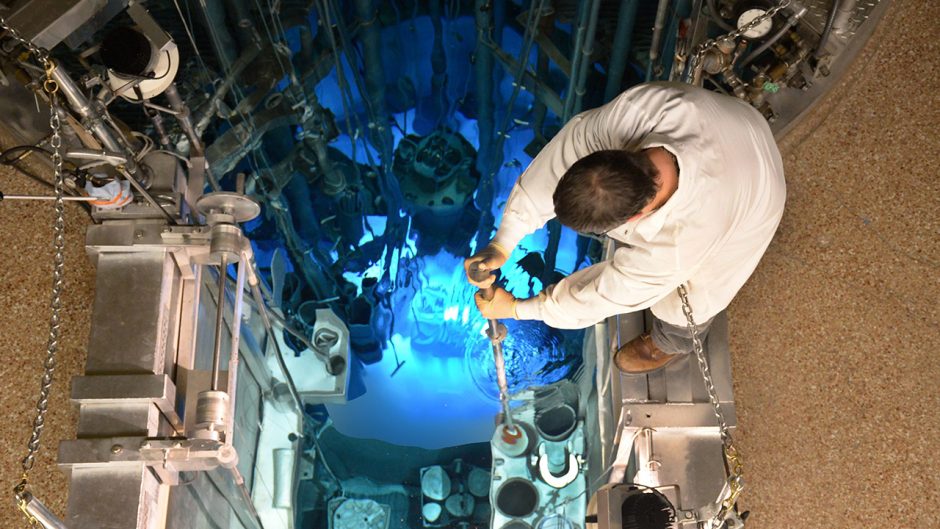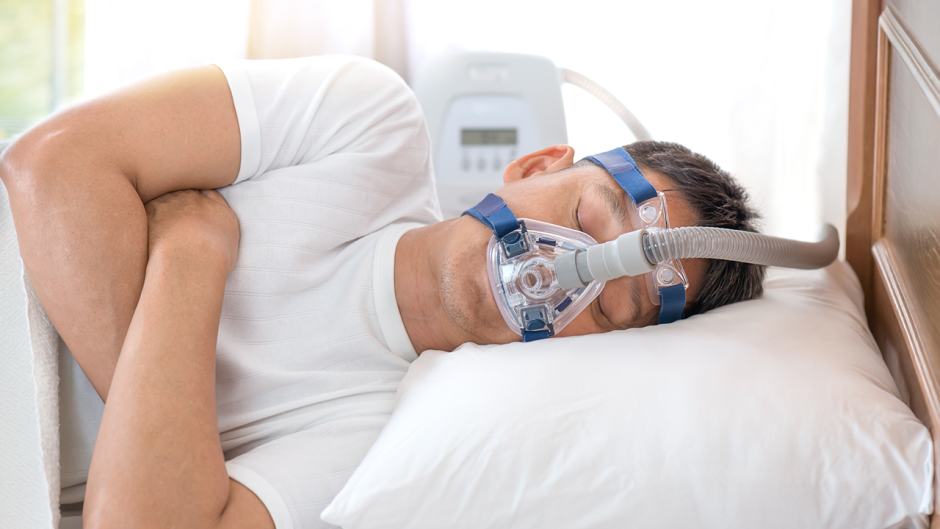Did you test positive for COVID-19?
You may be eligible to participate in an MU study evaluating immune responses to COVID-19. Participants will have blood drawn at various intervals and will be eligible to receive up to $50 in Amazon gift cards. To see if you are eligible to participate and learn more please contact us at mucvmcovidstudy@umsystem.edu.
Nov. 18, 2020
Contact: Brian Consiglio, 573-882-9144, consigliob@missouri.edu
Scientists conducting an interdisciplinary research project at the University of Missouri are taking blood draws of MU students, faculty and staff who have previously tested positive for COVID-19 to examine their antibody levels over a period of time. The project is designed to better understand how the human body’s immune system responds to COVID-19 post-infection.
“We have learned a lot about this disease over the past several months, but there is more that needs to be understood – for instance, how do different members of the population – particularly the younger, college-age demographic who are relatively highly socially active, develop immunity to this disease, and how long can that immunity be expected to last against possible reinfection,” said Ram Raghavan, the project’s primary investigator and a professor in both the MU College of Veterinary Medicine and MU School of Health Professions. “We can track this by looking at the body’s immune response from a diverse group of individuals at various intervals to see if the COVID-19 antibodies remain present in the body’s immune system over an extended period of time.”
Participants in the study will have their blood drawn at least four separate times, and personal information about the participants will not be made publicly available to protect their privacy.
Mark Daniels, an associate professor in the MU School of Medicine, is leading a team of immunologists in analyzing the blood samples. He says getting a better understanding of how the human body’s immune system responds to the disease can help researchers identify how long-term protection against infection is both generated and maintained.
“We are investigating which components of the immune system, in addition to antibodies, contribute to long-term protection,” Daniels said. “The data will inform us about how we can develop and improve treatments and vaccines against COVID-19 that are safe and effective, with special consideration for those in susceptible age groups or with co-morbidities.”
Daniels’ lab, using analyzing equipment and antibody tests provided by Siemens Healthineers, can process nearly 125 blood samples an hour, and participants can expect to receive their results in as early as 24 hours. One test aims to detect both Immunoglobulin M, the first antibody generated by the body when fighting an infection, as well as Immunoglobulin G, which can take longer to form but plays a bigger role in durable, long-lasting immunity. An additional test aims to solely detect Immunoglobulin G.
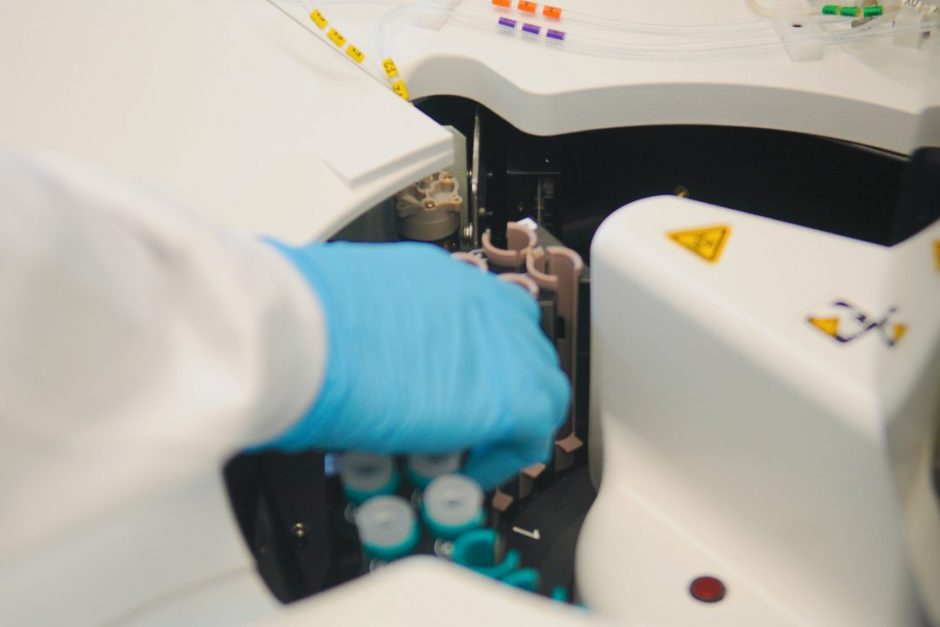
The blood samples are placed into the testing equipment, where they are analyzed to determine whether COVID-19 antibodies are present.
While the participants of the study are limited to MU students, faculty and staff who have already been diagnosed with COVID-19, the research findings can provide helpful insights about the immune response for the scientific community at large.
“While we currently do not know how long COVID-19 immunity lasts for those who have previously been infected, our overall goal is to control the spread of the disease and protect the health and safety of the MU community,” said Lynelle Phillips, a professor in the MU School of Health Professions who is collaborating with Raghavan on the project. “If as a society we were to eventually start considering public health policies for people who have previously been infected, we need to gather data by which to make these decisions, and this research can help play a part in that process.”

Ram Raghavan is a professor in the MU College of Veterinary Medicine and the MU School of Health Professions.
The project involves MU experts in areas such as public health, emergency medicine, veterinary medicine, nursing, epidemiology, infectious disease and immunology, as well as equipment, tests and funding from Siemens Healthineers.
Those interested in participating are invited to email mucvmcovidstudy@umsystem.edu to learn more.
Note: This project is part of a series of two studies being conducted in partnership with Siemens Healthineers. This project differs from the other MU research study being conducted, which is taking blood draws of MU students, faculty and staff to determine if COVID-19 antibodies are present in a single sample, regardless of whether the individual has previously tested positive for COVID-19.

